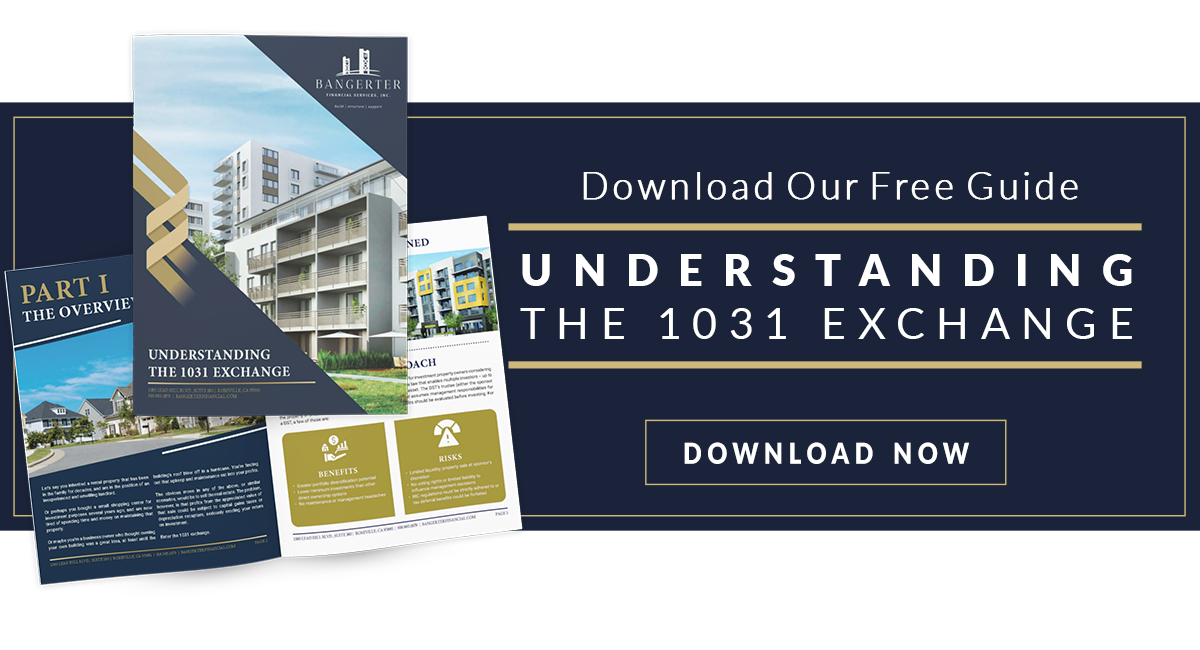Investing in property brings many advantages, including portfolio diversification and the ability to create a passive stream of potential income. However, when the time comes to sell your property, the taxes you’ll owe can significantly reduce your profits. This is the primary reason why so many property investors choose to take advantage of a 1031 exchange.
This transaction, which is based on IRS Code Section 1031, allows investors to exchange one piece of investment property for another, deferring capital gains and depreciation recapture taxes in the process. There are several reasons why an investor may want to engage in a 1031 exchange. Here’s a closer look at the top five.
1. Preservation of EquityA properly structured 1031 exchange provides taxpayers the opportunity to defer 100% of federal capital gains tax and depreciation recapture tax when selling investment property. This enables the investor to put more money to work when purchasing a replacement property, allowing them to buy a higher-value replacement property and potentially enhancing investment returns.
2. LeverageMany taxpayers use a 1031 exchange to replace a property with a high-equity position or one that is “free and clear” with a larger and more valuable property. A larger property may have the potential to provide a better return on investment with increased cash flow potential and additional depreciation benefits. Since there’s no limit to the number of times you can engage in a 1031 exchange, an investor could continue to “exchange up” several times throughout their lifetime, continually increasing the value of their portfolio in the process.
3. DiversificationTaxpayers have a number of opportunities for diversification through exchanges. One option is to diversify into another geographic region, such as selling one multi-family property in Denver, Colorado, and replacing it with two multi-family properties – one in Los Angeles, California, and the other in Dallas, Texas, for example.
Investors can also use a 1031 exchange to diversify by acquiring a new asset class. For example, an investor may exchange out of several single-family residential properties, purchasing a small retail strip center as the replacement property.
4. Management ReliefMany taxpayers acquire multiple single-family rental properties over the years. The on-going maintenance and management of single-family properties in multiple locations can be lessened by exchanging them for one replacement property better suited to on-site maintenance and management. Performing a 1031 exchange into a single multi-family property with a resident manager is one example of how this strategy can work.
5. Estate PlanningOften, a number of family members will inherit one large property and disagree about what they want to do with it. Some family members may want to continue holding the property while others may prefer to sell the investment property for cash proceeds.
To avoid this issue, a property owner may want to exchange one large property for several smaller replacement properties while they’re still alive. Doing so will allow the property owner to pass each property to separate heirs after his or her death. Then, each heir can choose to own the property individually or sell it to meet their needs.
Explore Your 1031 Exchange Options
There are many benefits that come with engaging in a 1031 exchange. Exploring your options can help you potentially earn higher returns, reduce risk through diversification, and avoid potential family issues after your passing.
If you would like to learn more about how a 1031 exchange may help you meet your goals, the professionals at Bangerter Financial are here to help. We’ll walk you through how it works and assist you in exploring your options. Contact us today to schedule a consultation.
 This is for informational purposes only, does not constitute as individual investment advice, and should not be relied upon as tax or legal advice. Please consult the appropriate professional regarding your individual circumstance.
This is for informational purposes only, does not constitute as individual investment advice, and should not be relied upon as tax or legal advice. Please consult the appropriate professional regarding your individual circumstance.
There are material risks associated with investing in DST properties and real estate securities including liquidity, tenant vacancies, general market conditions and competition, lack of operating history, interest rate risks, the risk of new supply coming to market and softening rental rates, general risks of owning/operating commercial and multifamily properties, short term leases associated with multi-family properties, financing risks, potential adverse tax consequences, general economic risks, development risks, long hold periods, and potential loss of the entire investment principal.
Potential cash flows/returns/appreciation are not guaranteed and could be lower than anticipated.
Diversification does not guarantee a profit or protect against a loss in a declining market. It is a method used to help manage investment risk.
Investment advisory services offered through Bangerter Financial Services, Inc. A state Registered Investment Advisor. Registered Representative and securities offered through Concorde Investment Services, Inc. (CIS), member FINRA/SIPC. Bangerter Financial Services, Inc. is independent of CIS.




.png?width=273&height=103&name=Brokercheck%20(1).png)

Comments